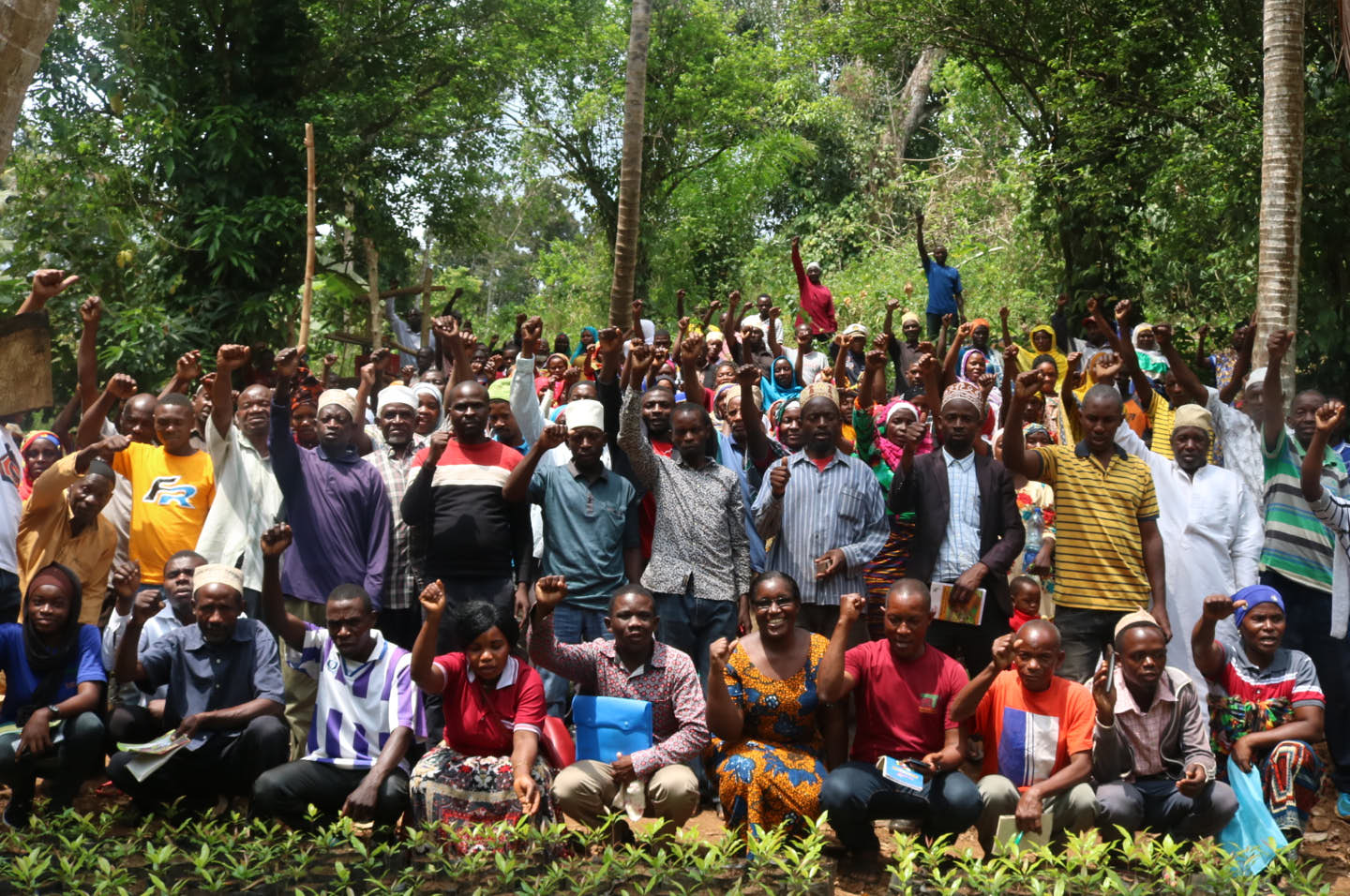Your Cart is Empty
Proud winners of the 2021 One World Award.
Proud winners of the 2021 One World Award.
Proud winners of the 2021 One World Award.
April 01, 2021

Agriculture is the backbone of Tanzania and plays a vital role in its economy. The majority of Tanzanians depend on farming as a major source of income, however many of them lack farming knowledge, input, and lucrative market access. Farmers can overcome these challenges by organizing into cooperatives to obtain a collective strength. SAT Holistic Group Ltd works on a contract basis with, as well as other organizations, the Spice Cooperative CHAUWAVIMU, which is located at Mtamba in Morogoro district.
In March, SAT Holistic Group Ltd and CHAUWAVIMU met to discuss prices for the upcoming spice harvest. During this meeting, we demonstrated what we’d be willing to pay for the upcoming harvest crops of black pepper, cardamom, cloves, ginger, and turmeric. The discussion was long, but fruitful. We showed that price premiums require organic certification and excellent quality. Another benefit was being able to look at the international and national prices to gain a better understanding of potential trends.
For us, the crucial information in the contract is the stipulated price. It is then signed by individual farmers, so that the terms of the sale are specified in advance. This contract reduces the risks and uncertainties for both parties, which could otherwise lead to market failures. We at SAT Holistic Group Ltd believe that contract farming is a good way to guarantee that produce if of a high-quality and at the right quantities. The contract scheme is also the basis for our Internal Control System, which is used for 3rd party organic certification.
Literature shows that contract farming can reduce these risks and uncertainties. Moreover, we have seen that clarity in market opportunities encourages smallholder farmers to invest more in their farm (see SAT’s impact story). Summarized, it can lead to higher productivity and income for the farmer, making it a suitable approach for raising standards of living. However, we are aware that this is subject to debate. There’s criticism and even evidence that shows that such contract schemes can lead to overexploitation of natural resources. Furthermore, they can create unequal power relations, leading to a loss of autonomy for farmers. A further issue is dropout rates, which arise when farmers can’t meet the quality standards, or simply through farmers becoming dissatisfied at a lack of transparency. A recent study (Ruml & Quaim 2020) concluded that “farmers’ satisfaction with contract farming is not yet sufficiently understood but is important to reduce dropouts and facilitate lasting partnership between smallholder farmers and agribusiness companies”.
As we source from organic smallholder farms that are highly bio-diverse and sustainable, we avoid the risk of over-exploiting their natural resources. As our farmers are well trained, and knowledgeable, meaning drop out quotes due to a lack of quality criteria won't be a concern. Even if a single crop is threatened by disease or weather extremes, the mixed cropping, practiced by the smallholders, is a great insurance policy and means farmers will always have quality crops available.
When setting up the partially farmer owned social business, SAT Holistic Group Ltd, a strong focus was put on keeping power relations low. We wanted to know what could be done to ensure that the farmers we collaborate with are fully on board.
For us, the price discussion is one of several steps where we engage farmers on a decision-making level. This creates a well-functioning flow of information, contract understanding, and hence transparency. Engaging in this process will reduce what the farmers may perceive to be opportunistic behavior. A clear understanding of the current situation, including alternative opportunities, creates a basis where required information is necessary for the decision-making process.
In tandem to price discussions, we are also working on governance systems that aim to keep hierarchies low and encourage participation. An example of one of these systems is Sociocracy, which seeks to create psychologically safe environments and productive organizations. Furthermore, we’re working to broaden our Objectives and Key Results (OKR) management approach to the cooperatives we work with, so that every single farmer is aware of “our” common goals and on how we approach them. All in all, our impactful journey starts with SAT Holistic Group Ltd, where we hope to transform not only farms, but also markets and communities. We look forward to sharing the experiences this journey brings, via SAT Holistic Group’s newsletter.
Further read: Ruml, A., M. Qaim (2020). Smallholder farmers’ dissatisfaction with contract schemes in spite of economic benefits: Issues of mistrust and lack of transparency. GlobalFood Discussion Paper 139, University of Goettingen. http://www.uni-goettingen.de/de/213486.html.